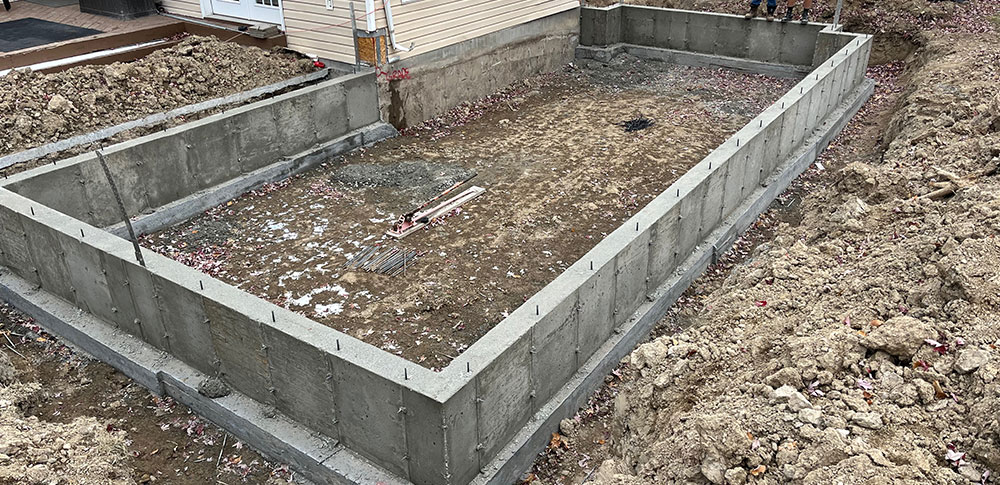Most homeowners dream of expanding their space—adding a garage, building a walkout basement, or creating an accessory structure in the yard. But before any of that begins, there’s one critical step that can’t be rushed or overlooked: excavation.
Excavation is more than digging. It’s the foundation of the entire project (literally and figuratively). A clean, accurate excavation sets the stage for everything from safe building to long-term drainage—and doing it wrong can cost thousands later.
What Goes Into a Solid Excavation Job?
- Accurate Layout and Marking: We start by confirming the layout with the homeowner or contractor and marking utilities to avoid costly damage or project delays. Every dig has to be precise to align with engineered plans, local building codes, and future structural needs.
- Access Management: Tight space? Narrow gate? Sloped lot? We’ve seen it all. We bring in the right equipment—skid steers, mini-excavators, or full-size machines—and plan the route ahead of time to minimize impact on existing landscaping.
- Soil Considerations: The type of soil affects everything. Clay, sand, and loam all behave differently. We adjust depth, slope, and compaction based on what we’re digging into, to ensure the site can support foundations, prevent shifting, and allow for proper drainage.
- Grading and Drainage: After digging, we don’t just leave a hole. We carefully grade the surrounding area to prevent water pooling and direct runoff away from the structure. Proper drainage now saves costly water damage later.
- Working with Other Trades: Excavation doesn’t happen in a bubble. We coordinate with concrete crews, plumbers, and general contractors to ensure that our work lines up with theirs, keeping the build on schedule and within spec.
Why It Matters
Bad excavation can delay your entire project, cause structural issues, or ruin an otherwise well-designed build. But when done right, it becomes the invisible success story behind a seamless home addition or build.
Our team takes excavation seriously—because we know how important it is to the people who live there long after we leave.

